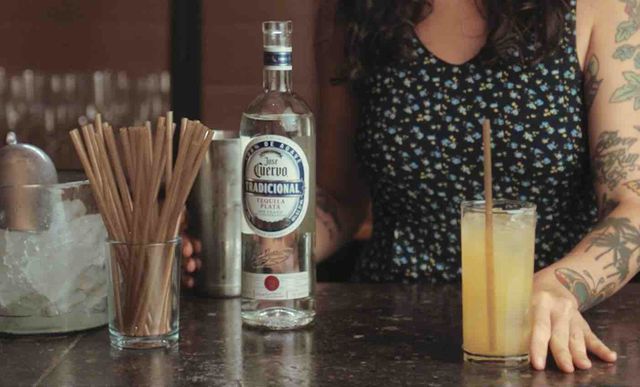
The year 2020 signals the start of a new decade and, with it, likely an ever increasing emphasis on environmental awareness. After years of R&D in the field, an international client, tequila brand Jose Cuervo, has unveiled its plans to use the by-product of its drink distilling to produce bio-based drinking straws.
Casa Cuervo is using leftover fibres from agave, the main ingredient in the distillation of tequila, to replace around a third of the traditional components in plastic drinking draws. These new straws, under landfill conditions, take around one to five years to biodegrade entirely; bacteria and micro-organisms break down the materials used to produce the straws before they have a chance to enter the ecosystem.
Not only does this reduce the environmental impact at the point of consumption, but it also helps reduce large amounts of waste left over from the distilling process, making for a less environmentally damaging production line overall. In one move, the company is tackling both the waste produced by its products’ consumption and the waste produced by its production; an efficient and eco-friendly process.
It is great to see a market leader taking proactive steps towards a greener production process, however, there are some who argue bio-plastics are not the way forward. Recycling expert, founder and CEO of Miniwiz (a circular economy company), Arthur Huang, proposed in a recent interview that bioplastics end up being worse for the environment than conventional plastics. Whereas regular plastic poses a largely ‘aesthetic’ problem, bioplastics are broken down and absorbed into the environment, therefore, changing the pH value of soil and sometimes damaging food sources for animals within the ecosystem.
While the idea of plastic being purely an ‘aesthetic’ problem remains debatable – as it often ends up in the food sources of unassuming animals – the extent of bioplastic’s degradation on the environments is yet to be seen. Certainly, it is better for large companies to be proactively implementing solutions to the ever-growing problem of excess plastic than to sit around waiting for scientists to agree precisely the best course of action.
Regardless of the criticism, Jose Cuervo is certainly taking a step in the right direction in being aware of its operations’ ecological impact. Hopefully, 2020 will be the year we see many of the other market leaders take similar steps towards ecological awareness and action.
As the tequila industry worldwide booms, it is our company’s responsibility as the leader to take care of the agave plant and ensure that we are producing tequila sustainably